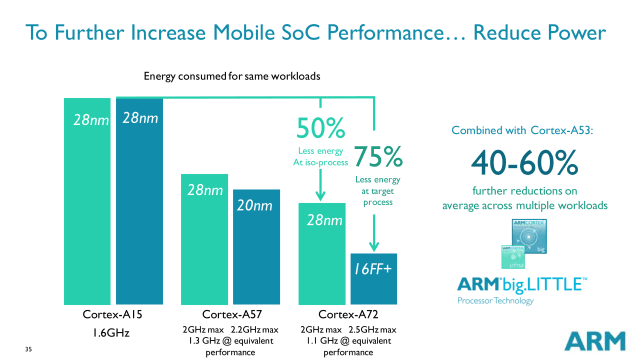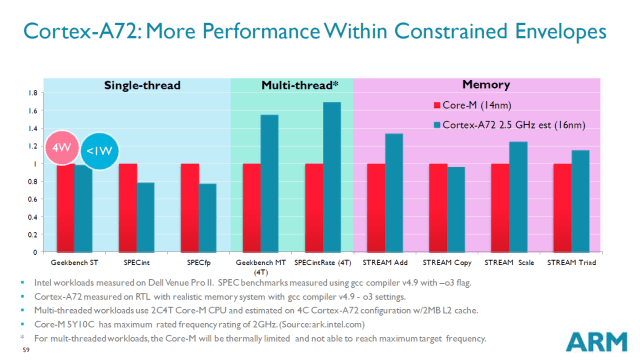As more and more people are using their smartphones and tablets as their primary computing devices, the processing performance of these devices is getting all that important. ARM is the driving force behind mobile processors, and even the biggies like Qualcomm, Apple, Samsung, and Nvidia rely on it. After announcing its next-generation cores earlier this year, ARM has detailed some of the features of its upcoming CPU cores dubbed Cortex-A72. These cores, which are successors to the current-generation Cortex-A57 cores, and are claimed to be comparatively faster, more power-efficient, and smaller.
Qualcomm and MediaTek are already developing chipsets based on Cortex-A72 CPU designs. Qualcomm will be releasing Snapdragon 618 and Snapdragon 620 SoCs while MediaTek will release MT8173 this year, but all these chips will be built using 28nm process. The first mobile processors with 16nm finFET-based Cortex-A57 CPU cores will come out in early 2016. Cortex-A72 cores are claimed to have 20 to 60 percent more IPC than Cortex-A57 cores along with reduced latency on functional blocks, which in turn results in smaller sized cores and increased energy-efficiency. ARM is reporting Cortex-A72 to be 18 to 30 percent more energy efficient than Cortex-A57.
ARM has shown studies where Cortex-A72 outperforms Intel Core M processor when they are made to operate under similar power and/or thermal envelope. Intel Core M processors are currently being used in Ultrabooks and Apple's recently released Macbook. Overall, these new CPUs from ARM seem to be really great on paper, but we saw what happened with Qualcomm when they used Cortex-A57 in their recently released 64-bit chipset, the Snapdragon 810. So we need to see how well companies like Qualcomm, Samsung, and MediaTek actually use Cortex-A72 in their upcoming SoCs.

















